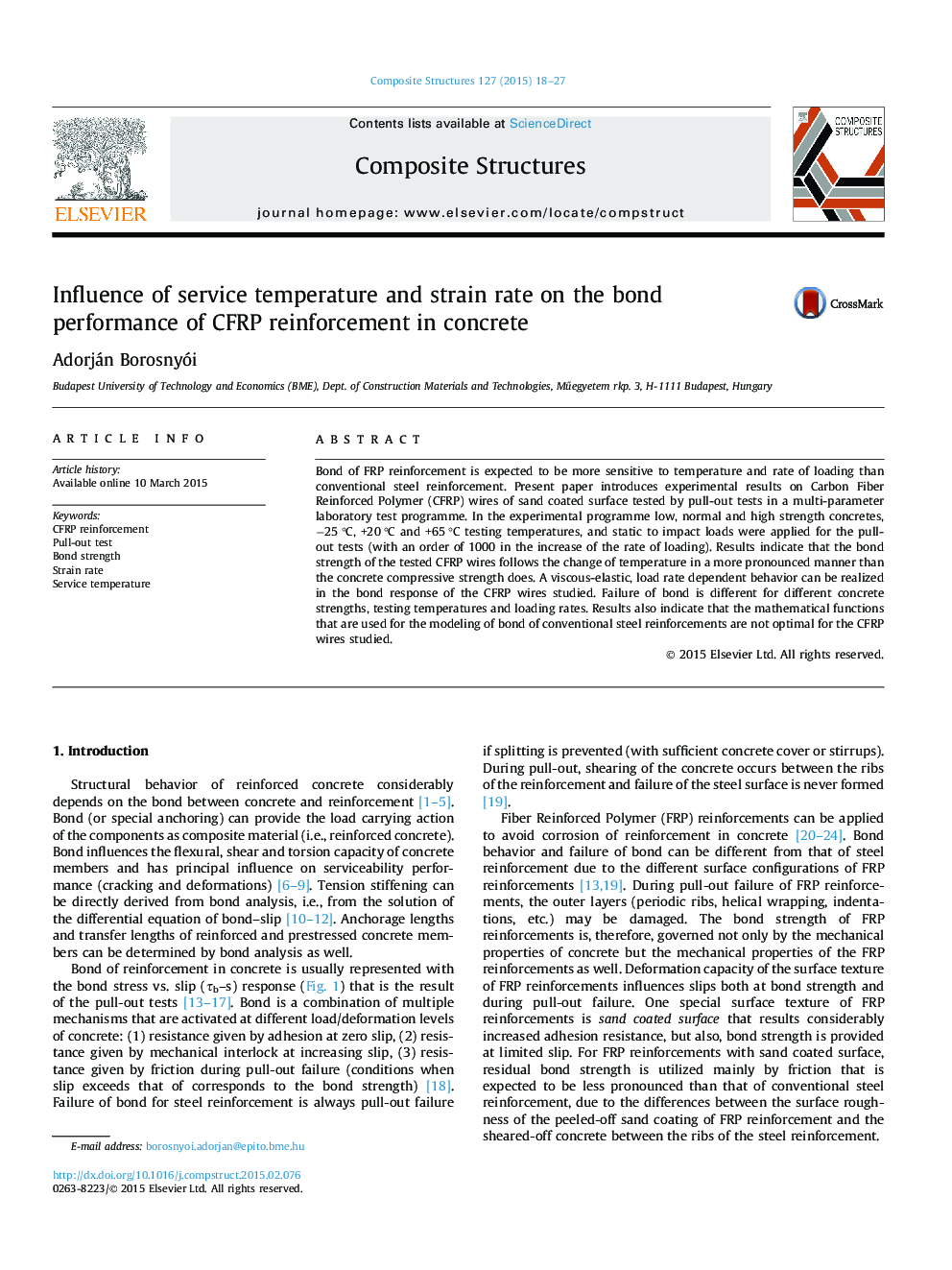| Article ID | Journal | Published Year | Pages | File Type |
|---|---|---|---|---|
| 251261 | Composite Structures | 2015 | 10 Pages |
Bond of FRP reinforcement is expected to be more sensitive to temperature and rate of loading than conventional steel reinforcement. Present paper introduces experimental results on Carbon Fiber Reinforced Polymer (CFRP) wires of sand coated surface tested by pull-out tests in a multi-parameter laboratory test programme. In the experimental programme low, normal and high strength concretes, −25 °C, +20 °C and +65 °C testing temperatures, and static to impact loads were applied for the pull-out tests (with an order of 1000 in the increase of the rate of loading). Results indicate that the bond strength of the tested CFRP wires follows the change of temperature in a more pronounced manner than the concrete compressive strength does. A viscous-elastic, load rate dependent behavior can be realized in the bond response of the CFRP wires studied. Failure of bond is different for different concrete strengths, testing temperatures and loading rates. Results also indicate that the mathematical functions that are used for the modeling of bond of conventional steel reinforcements are not optimal for the CFRP wires studied.
